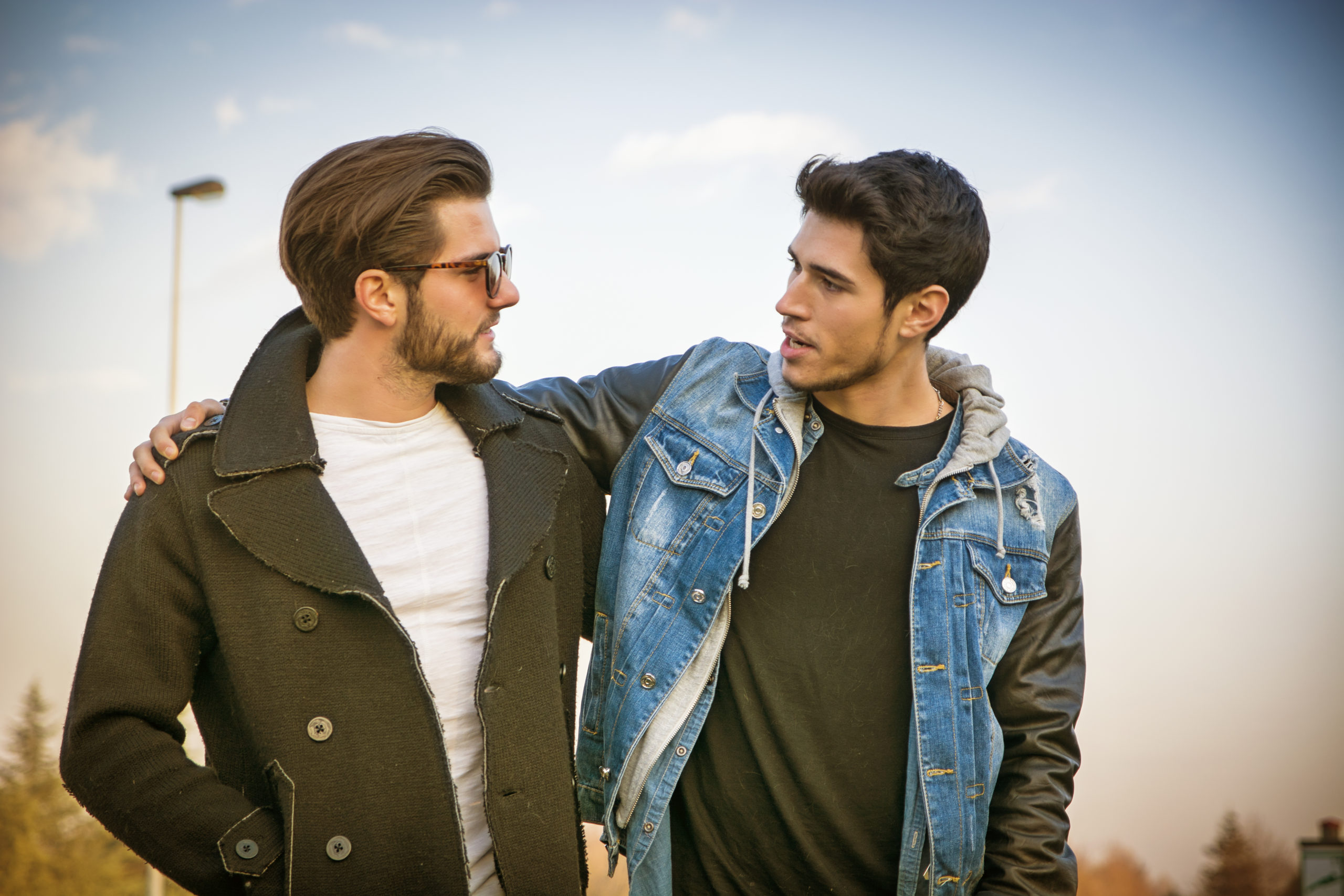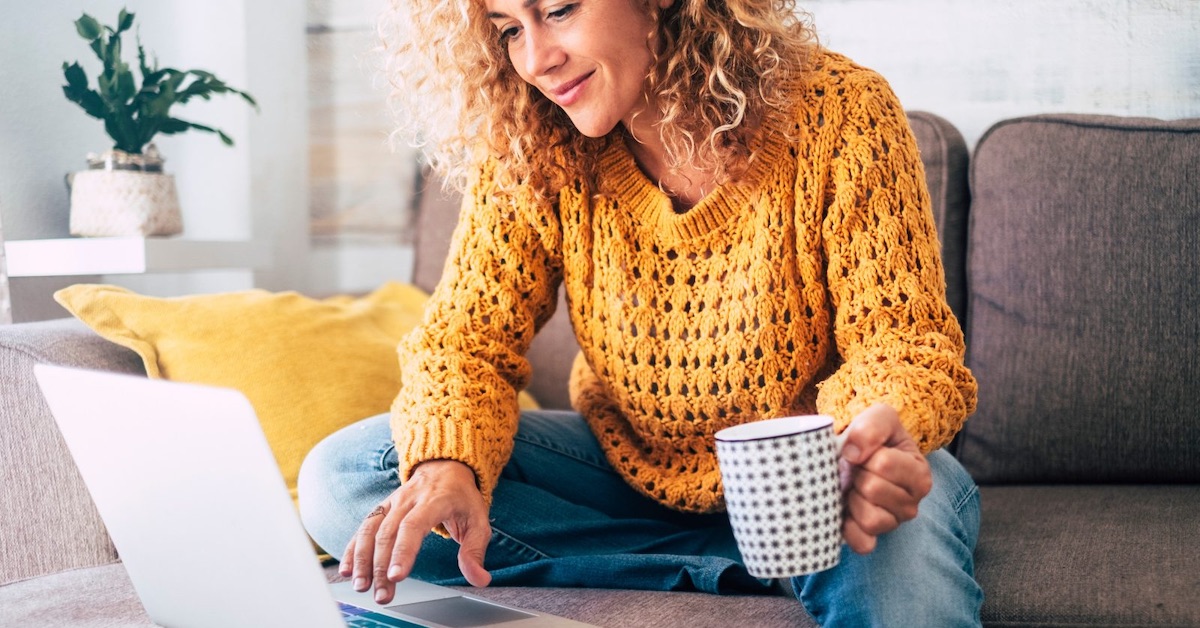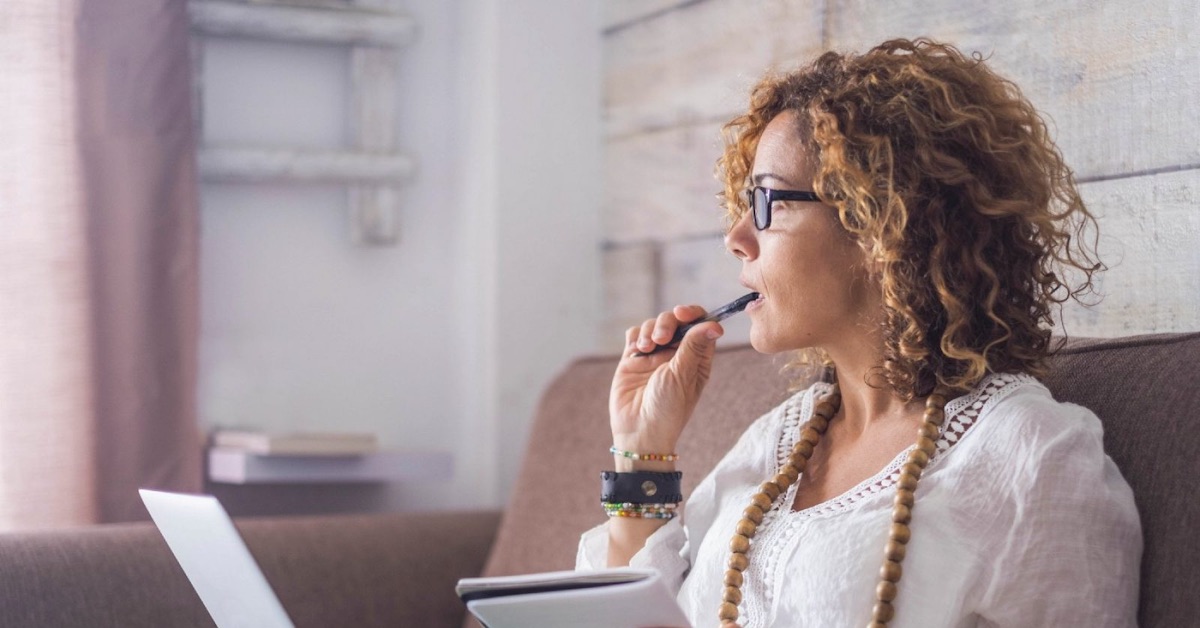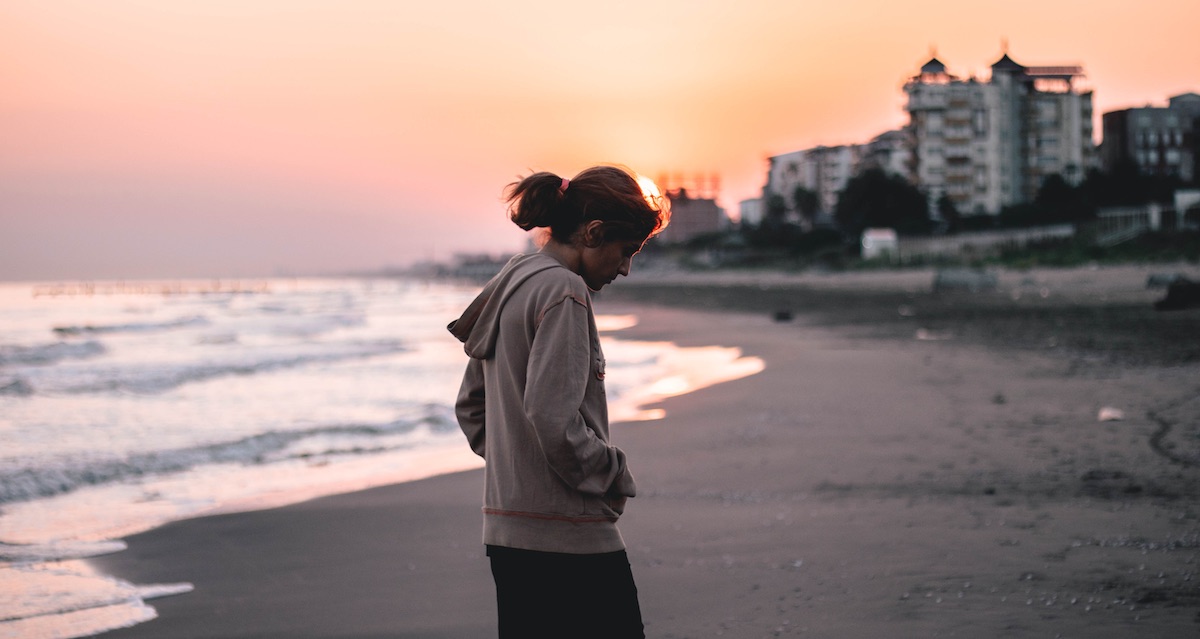On Masculinity and Intimacy

Jared Scharf, Lead Operations Coordinator
November 17, 2020
When we hear “men” and “intimacy”, what often follows is “romance” or “family.” Western society in particular expects men to hold intimate relationships with partners or family members (to some degree, anyway), but amongst ourselves? C’mon. When do you consistently hear or see stories of adult friendships between men exploring openness and vulnerability with one another?
One example of representation that comes to mind for me isn’t even men in the U.S., it’s in the music video Virile by the French DJ duo The Blaze. In the music video, two guys are dancing, drinking, and showing affection for one another in a living room. That’s the entire video. They never state whether the guys are gay or straight – it’s up for interpretation – but it’s certainly a music video filled with joy along with tender connection. By leaving it up to the viewer to decide, I think The Blaze breaks new ground by pushing the boundaries of “standard” cis-gendered friendships between men. Solely the question that arises from the video – whether this is a raw take of incredibly deep love through friendship, with no romance – creates a fresher perspective than what society shows us today.
By the way, I love that their relationship depicts vulnerability, not stemming from connecting through shared suffering, but through pure joy. I think that’s a form of openness that too often flies under the radar. I found this mutual vulnerability in a different, unlikely place as well: on the front page of Vogue’s December issue. Harry Styles, boy-band One Direction frontman and extremely successful solo artist, spoke of his deep friendship with personal stylist Harry Lambert. Vogue writer Hamish Bowles documents how the two men call each other “Sue and Susan” while looking through a “Gucci man-bra” that Styles models in his shoot. Their relationship over time has been pinned together (sorry) through clothing; Lambert’s recommendation of Styles’ Rubik’s Cube cardigan created a viral trend on TikTok in February, and the original will land in London’s Victoria & Albert Museum in their permanent collection.
As much as I’m curious to rock a norm-bending man-bra recommended by a personal stylist and become an international rockstar, I’d say that intimacy in friendships with the men in my life looks a bit different. I spoke on the phone with a friend the other week – it had been a while since we had caught up. Our conversation began with the impossibly strange question of “how are you?” and laughing at the absurdity of the greeting. We compared notes and reflections on COVID and the election, sharing some of our thoughts on the state of our country and the world. After a bit, he asked me, “What else is on your mind, man? What’s new?”
In my relationships, this is a question built on trust, the real “How are you?” After almost a decade of friendship, I knew I could be vulnerable with him, and I was. I explained that I think I’ve been wrestling lately with a fear of being alone, and that I noticed my natural impulses lately have been to fill up my time in aversion to my feelings of loneliness. I’m sick of mindlessly scrolling on my phone… but it must be easier than dealing with 2020, right?
He laughed, and told me he has been feeling the same way but was having trouble articulating it. We talked about how we cope: running, meditation, hiking, turning off our phones. The conversation moved on, but the sense of connection remained. It’s nice to feel understood.
This is what male intimacy in friendship can look like for me. I believe this intimacy, or lack thereof, can have profound implications for people who identify as cisgender men, particularly as they age. In Western cultures, we are raised into a set of cultural norms and expectations about masculinity and manhood that are outdated and harmful not only to our own mental health, but also to our relationships and those around us. Men are consistently more likely to report existential isolation – the subjective experience of feeling fundamentally separate from other human beings. Researchers speculate it is because men are less likely to endorse communal values, a pretty inevitable conclusion considering that traditional masculine values are built on self-sufficiency and independence. There’s also a slew of research in older adults chronicling the serious health effects of loneliness on health: heart disease, stroke, premature death, the list goes on.
The absence of representation of intimate friendships affects men because it doesn’t leave us with a whole lot of options for knowing how to act. Yes, we should educate ourselves to recognize the ways we hurt ourselves and others regardless of what society shows us – I would never say otherwise. However, it’s always hard to go against cultural norms, particularly with something as deeply ingrained in us all as the patriarchy. If modern role models of masculinity only portray tough dudes with no feelings with no need to talk to other people, then all these insecurities and fears get channeled into pretty harmful behavior, like following leaders who champion physical and emotional dominance over others as integral to the definition of being a man.
For those men reading this and shaking their heads: is it because you don’t have fears or insecurities, or you don’t desire social connection? That’s like, amazing. I’m not scared of climate change or pandemics or secrets or letting my guard down either. Maybe it’s just me.
*rolls eyes*
The good news is that this is changing. I believe men are learning to be intimate and honest with each other about their lived experiences, and I wanted to write about how that evolved for me. Before sharing my journey, I have two notes:
- Intimacy can be tough for anyone, and I certainly think it’s a journey I am learning more about over time. It’s always tough to get good at being truly vulnerable, particularly in situations where society dictates it isn’t socially acceptable.
- I’m all for intimacy and vulnerability… as parts of the greater whole of our relationships. For myself, particularly being someone who can spend a lot of time in the deep end of thoughts and feelings, I really appreciate that my friends bring out other parts of me too – competition, goofiness, perspective. Balance is key.
That being said, I think there are three things that helped me become more comfortable with intimacy in my male friendships over time.
The first has been meditation. I am inspired by what spiritual traditions often depict as a “warrior” – someone who derives strength from compassion and presence for self and others. Sitting with myself – my feelings and thoughts – often feels like a form of bravery to me. When I first started to sit in meditation, I didn’t even do all the breathing instructions. I just set a timer and closed my eyes, willing myself not to get up. Over time, I have become more comfortable with my own discomfort, and therefore am more willing to explore it with others and vice versa. No, I haven’t found inner peace, I’m finding it fairly FICKLE to be candid. But I’ll keep you posted..
The second is therapy. My therapist helped me challenge my negative thoughts, re-energize and re-define my integrity and perceptions of what it means to be a man, inspired me to become more confident with my own value system, and helped me learn vocabulary and questions to share with and receive while connecting with others.
The third is people. I have men (and women) in my life who challenge and care about me. Our relationships are made up of mutual respect, gratitude, and authenticity. I’m lucky, and I also know that there are other men out there who find meaning in defining their friendships beyond outdated norms and toxic perceptions of manhood.
I’ve been tossing over this thought in my head, in the midst of such political and cultural divisiveness: what does healing look like, on what scale, and where do we start? It almost feels naive to entertain unity in society today. But then again, I’ve always been an idealist. Obviously, there’s no one right answer, but I do feel like one of them lies with men. We gotta get better – at knowing ourselves, figuring out how to bring balance to our relationships and communities, and sitting with the discomfort that is inherent in intimacy and vulnerability. I think one way we can do that is, simply, together, and I think we have to if we want to make the world a better place. Our mental health, and our interconnectedness with those around us, depend on it.
If this inspires you, or makes you think, or – god forbid – makes you feel something that you want to talk about – reach out. There are organizations that facilitate these kinds of conversations across the nation, whether it’s working through your mental health difficulties with a therapist or men’s groups that focus on discussions to redefine and rebrand manhood and masculinity. Below are a few examples.
See you out there.
Explore more

Quality Mental Health Care, Wherever You Are
At Quartet, we know that mental health care isn’t one size fits all.

Take Your Own Advice: A Note to Therapists on Self Care During COVID‑19
COVID-19 added a layer of complexity for mental healthcare workers, who may be experiencing their own stressors and anxieties related to the crisis.

Fighting Two Pandemics: Supporting Domestic Violence Survivors and Their Mental Health Needs During COVID‑19
For some, following the stay-at-home orders for one pandemic may render them vulnerable to another: domestic violence.



